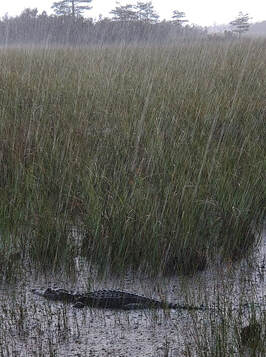
"There's a world of pleasure in contrarianism." ~ Wendell Berry
June has been a month of travel for me and my family. Of fuel burned for a conference and a vacation. Of tough, personal choices to do something a slightly harder way. To drive instead of fly. To burn slightly less. Less of that ancient sunlight that has been gifted to our generation by our geologic ancestors. But driving, I still burned fuel. Was that fuel seized from the deep sea? From an offshore drill leaking that poisonous black gold, never-seen, into the Gulf of Mexico? Was it transported through pipelines that both waste the labor of truck drivers (one of the few middle class jobs still available to the less educated) and spilled into the soil of farms? Or was that oil taken from the Canadian tar sands? Did it release 15% more CO2 than other extraction methods? Did it use up more fresh water in being refined? Even while children go hungry and thirsty in my home state? My commonwealth that has earned an "F" for our response to lead in school drinking water. Did I do anything great by driving to Ontario for the philosophy conference, and then to Florida for vacation? No. But I did less harm than if I had taken an airplane.
A big old alligator sits in the everglades eating fish as the near-daily summer rains fall. The fish, and therefore the alligator, need clean water that flows from further north in the state. Where poisonous farming practices endanger the entire everglades ecosystem. When we educate we make choices that, on one hand, sustain the environment and, on the other, increase ecological literacy. My 4-year old son takes his role as a Junior Park Ranger seriously. At the Everglades Shark Valley Visitor Center, he teaches another young child about alligators. And he warns them about the Burmese Python, an invasive species that park workers are attempting to remove. He has been concerned about the challenge since watching The Great Swamp Search on his favorite show. Octonauts. There he learned about invasive species out-competing and preying on native species. On the tram tour, he learns learns more about efforts to remove the pythons. He also learns that the endangered snail kite is evolving longer beaks to eat the invasive apple snails that have displaced the native snails they evolved to eat. Not all invasive species remain bad for the ecosystem. Mother Earth can find a new balance.
In our capitalist system there are no perfect choices for us teaching for ecological literacy. Cultivating eco-literacy, or any education really, can be at odds with refusing to use much oil. To living entirely sustainably. We make imperfect choices. At the conference in Ontario, I talked about making music education into a sustainable and regenerative permaculture. But were the few people who attended my presentation enough? Did I change enough minds to make a difference? To offset the costs of driving? I also published two peer-reviewed articles in June. In Music Educators Journal, Vincent Bates and I published the lead article, providing a "guide" for saving the planet through music education. In TOPICS for Music Education Praxis, I challenge waste, material and metaphorical, in popular music education. This is a contrarian act. It goes against the grain of music education's scholarly discourse. Even if it is a consideration for many music teachers already. But is this work enough?
And then on to Florida for vacation. Our ecological literacy was increased. Especially in our visits to National Parks protected places: Congaree, Everglades, Biscayne, Big Cypress, Timucuan, and even Manassas. But was increased eco-literacy enough to offset our fuel use? Perhaps. I don't think there are easy answers. But music education must be transformed. We must work to transform it, even as the weight of the environmental crises fuels despair. We music teachers and learners need to make choices that are better. That's true for society as a whole. We can start now, perhaps, by being a little contrarian.
DJS
 RSS Feed
RSS Feed
